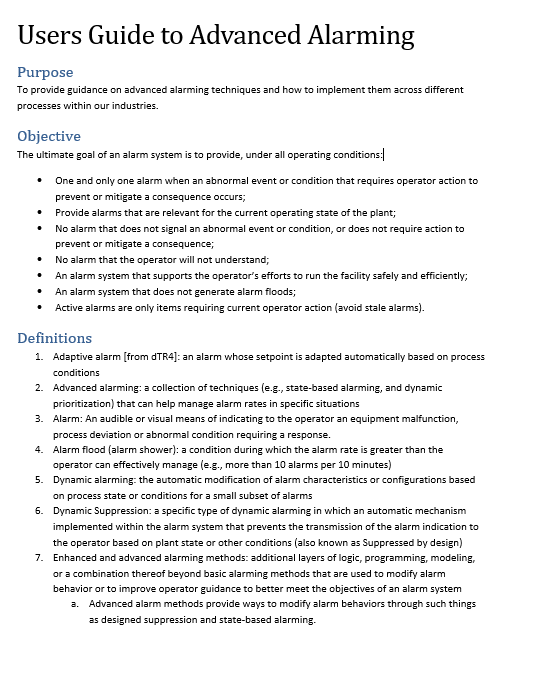Last week, I highlighted the work of the Center for Operator Performance (COP) in research on optimal levels of operator control changes. Another one I listened in on was an update on advanced alarming techniques. This initiative is looking at how to implement and document advanced alarming for reduced alarm flooding. The intent is to identify proper levels of alarm suppression to reduce operator workload during process upsets and help facilitate detection of independent malfunctions.
Even with proper selection and rationalization of alarms, flooding events in abnormal states can still overwhelm operators and render the alarm system useless. Alarms must be able to drive the appropriate actions to mitigate the situation.
 Advanced alarming is defined as a collection of techniques that can help manage alarm rates in specific situations. The intent of this initiative is to provide a user guide that will provide guidance on advanced alarming techniques and how to implement them across different processes within our industries. The guide includes a purpose, objectives, definitions, and specifics on each of the techniques.
Advanced alarming is defined as a collection of techniques that can help manage alarm rates in specific situations. The intent of this initiative is to provide a user guide that will provide guidance on advanced alarming techniques and how to implement them across different processes within our industries. The guide includes a purpose, objectives, definitions, and specifics on each of the techniques.
For example, in the Management of Change section, advanced alarming management of change demonstrates that no trap has been created with a change in alarm characteristics that may result in failure to warn the operator of an actionable response. Tables in the section includes the process equipment and the consequences of inaction to various upset conditions.
By taking each piece of process equipment, looking at their process parameters, the alarm conditions for these parameters, all the consequences of inaction for each of these alarm conditions, and advanced alarming techniques to group alarms as needed to keep the operators from being overwhelmed in a specific situation.
This guide should be completed and distributed to COP members in the next couple of months.
If you’re interested in learning more about this and other work of the Center for Operator Performance, visit their Membership Information page.
